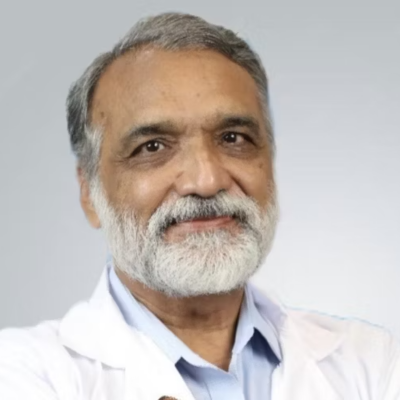The Role of Government Initiatives in Promoting Medical Tourism in India
 02 April,2025
Read More
02 April,2025
Read More
Enquire now in case of any assistance needed
Starting From: USD 2887 - USD 5774
Maze Procedure (Atrial Fibrillation Surgery) is affordable in India. The cost of Maze Procedure (Atrial Fibrillation Surgery) in India lies between USD 2887 - USD 5774. The exact procedure price depends on multiple factors such as the surgeon's experience, type of hospital, severity of the condition, patient's general condition,�etc.
Atrial fibrillation (AFib) is a common cardiac arrhythmia characterized by irregular and often rapid heartbeats. Left untreated, AFib can lead to serious complications, including heart failure and stroke. The Maze procedure, a surgical intervention for AFib, has emerged as a transformative technique for restoring normal heart rhythm. Let us learn more about the history, mechanics, benefits, and future prospects of the Maze procedure for atrial fibrillation.
The Maze procedure, initially conceived by Dr. James Cox in the 1980s, represented a pioneering approach to treating AFib. Dr. Cox's innovative technique aimed to create a series of incisions or "maze-like" patterns in the atrial tissue to disrupt erratic electrical pathways, thereby reestablishing a regular heart rhythm. Over the years, the procedure has evolved with refinements in technique and the introduction of minimally invasive approaches.
The Maze procedure targets the electrical impulses that trigger abnormal heart rhythms in the atria, and the upper chambers of the heart. The goal is to create a controlled and predictable electrical pathway, allowing for organized contractions and a synchronized heartbeat.
The best candidates for the Maze procedure are those who meet specific criteria:
It's important to note that the suitability of candidates for the Maze procedure is assessed on an individual basis. The decision is based on the specific circumstances, medical history, and preferences of each patient. Additionally, advancements in medical science may lead to expanded eligibility criteria and new techniques in the future.
The steps of the Maze procedure may include:
As medical science continues to advance, so do the prospects for further refinements and innovations in the Maze procedure for AFib. Some notable areas of ongoing research and development include:
The Maze procedure for atrial fibrillation stands as a testament to the remarkable progress in cardiac surgery. Through meticulous planning and innovative techniques, surgeons are able to restore regular heart rhythm, offering a renewed lease on life for patients suffering from AFib. With ongoing research and technological advancements, the future of the Maze procedure promises even greater success and accessibility, reaffirming its place as a cornerstone of modern cardiovascular medicine.
Director
Interventional Cardiologist
CK Birla Hospitals | BM Birla Heart Hospital
Book AppointmentSenior Consultant
Cardiologist
CK Birla Hospitals | BM Birla Heart Hospital
Book AppointmentConsultant
Interventional Cardiologist
Gleneagles BGS Hospital Kengeri, Bengaluru
Book AppointmentConsultant
Interventional Cardiologist
Manipal Hospital, Yeshwanthpur, Bangalore
Book AppointmentChairman
Interventional Cardiologist
BLK-Max Super Speciality Hospital, New Delhi
Book AppointmentSenior Consultant
Cardiothoracic and Vascular Surgeon, Vascular Surgeon
Director
Interventional Cardiologist
CK Birla Hospitals | BM Birla Heart Hospital
Book AppointmentSenior Consultant
Cardiologist
CK Birla Hospitals | BM Birla Heart Hospital
Book AppointmentConsultant
Interventional Cardiologist
Gleneagles BGS Hospital Kengeri, Bengaluru
Book AppointmentConsultant
Interventional Cardiologist
Manipal Hospital, Yeshwanthpur, Bangalore
Book AppointmentChairman
Interventional Cardiologist
BLK-Max Super Speciality Hospital, New Delhi
Book AppointmentSenior Consultant
Cardiothoracic and Vascular Surgeon, Vascular Surgeon
Director
Interventional Cardiologist
CK Birla Hospitals | BM Birla Heart Hospital
Book AppointmentSenior Consultant
Cardiologist
CK Birla Hospitals | BM Birla Heart Hospital
Book AppointmentBDS, Fellowship, MSc
Dr. Ishita Shirvalkar is a dentist, forensic odontologist, and medical writer. She has over two years of clinical experience. She completed her education at reputed institutions such as VSPM Dental College and Research Center in Nagpur.
Dr. Ishita Shirvalkar is a dentist, forensic odontologist, and medical writer. She has over two years of clinical experience. She completed her education at reputed institutions such as VSPM Dental College and Research Center in Nagpur....
Chairman
Cardiac Electrophysiologist, Interventional Cardiologist
Dr. T. S. Kler is a Padma Bhushan recipient with over 48 years of experience as an Interventional Cardiologist and Electrophysiologist. He has performed over 35,000 angioplasties and is a pioneer in electrophysiology, having established the first department in India. ...
The Art of Effective Communication
 02 April,2025
Read More
02 April,2025
Read More
 27 March,2025
Read More
27 March,2025
Read More
 26 March,2025
Read More
26 March,2025
Read More
 22 March,2025
Read More
22 March,2025
Read More
 12 March,2025
Read More
12 March,2025
Read More
 24 January,2025
Read More
24 January,2025
Read More





